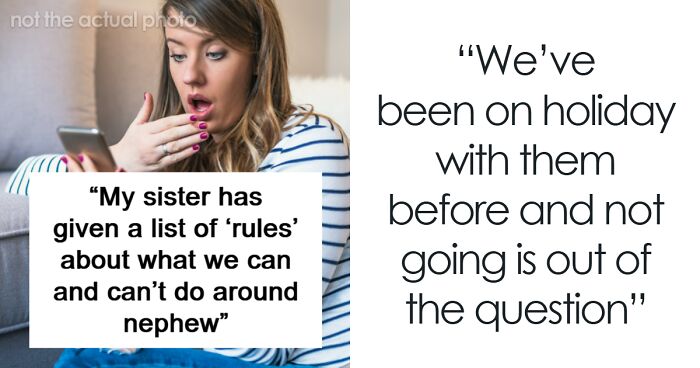
Woman Doesn’t Know How To React To Sister’s Rules For Upcoming Family Holiday
Earlier this month, a woman made a post on the popular parenting forum Mumsnet, expressing her worries about a holiday her family is planning to take on Easter.
Her nephew finally got his autism diagnosis, and the boy’s mom—her sister—has created a set of rules for everyone on the trip so that they can have a positive experience.
The problem is that the aunt feels the list might be too long; however, she loves the kid and doesn’t want to cause unnecessary drama.
This woman has just received a list of things she can and cannot do on her family trip
Image credits: user25451090 (not the actual image)
And she doesn’t know how to react to it
Image credits: Alex P (not the actual image)
Image credits: freepik (not the actual image)
Image credits: APATEKPHILLIPEWATCH
Every autistic person is different, but planning ahead can be the difference between an enjoyable and disastrous trip
Autism spectrum disorder (ASD) is a condition related to brain development that impacts how a person perceives and socializes with others. It also includes limited and repetitive patterns of behavior. However, the term “spectrum” implies there’s a wide range of symptoms and severity, and the features of one case can’t automatically be applied to another.
For example, some kids with ASD have difficulty learning, and some have signs of lower than normal intelligence. Others have normal to high intelligence—they learn quickly, yet have trouble communicating and applying what they know in everyday life, and adjusting to social situations.
That being said, children with ASD often experience sensory processing differences, making new sights, sounds, and textures overwhelming. These challenges can lead to sensory overload, making it essential to plan ahead whenever traveling.
According to experts at Aspect, an organization committed to protecting the rights and interests of children and vulnerable people, holiday preparations should consider everyone in the family, but interests are a strong motivator for those with autism, and it can be really helpful to include them in the itinerary.
Image credits: freepik (not the actual image)
Similarly, some autistic children may be really interested in the planning process of the holiday as it can help them feel as though they have some level of choice and control over something that can be very unfamiliar. A great way of doing this is by creating a shortlist of destinations, accommodation, and activities, all of which you would be happy with, and letting them investigate and make their own suggestions.
Travel is full of new experiences, and routine tends to go out the window. This can be especially difficult for those autistic people who thrive on certainty. Whilst it is not possible to replicate a child’s complete routine, parents can still keep some parts. For instance, if they have a shower at 7 p.m. every night, followed by a story and bed, and they enjoy that particular routine, then it’s probably worth a shot.
For some autistic people, access to the same safe foods can be the difference between eating and not eating, and a hungry child is not going to be a well-regulated child. So, ensuring that a child consumes food in a new environment is also important. This can be as simple as packing a few boxes of their favourite cereal, but it can also require more effort.
If a family is having trouble setting everything up and they have the means, some places offer autism-friendly features, while others go further and become autism certified.
Image credits: freepik (not the actual image)
A lot of people who read the story said they wouldn’t even go on the trip under such circumstances
Poll Question
How do you feel about the rules set by the aunt's sister for the trip?
Necessary for the nephew's well-being
Too restrictive
Reasonable considerations
Not sure
Raising a child with ADHD and/or ASD isn't done through enabling them in all ways. It is done by helping them find their own boundaries/limits and those of the people around them. Then helping them find a way how to enforce their own boundaries/limits in such a way that it does not disrespect the boundaries/limits of people around you. This is a basic exercise that should be done in all situations where children are being raised, but for people/children with ADHD, ASD or who have gone through a severe traumatic situation, their boundaries are what keeps them able to function. The big challenge with ADHD an/or ASD is, that those boundaries may lie in completely different places than with most people, and that especially people with ASD have difficulty understanding/sensing/realizing the boundaries of others. This is not unwillingness, it is being (almost) blind for it. So caretakers need to help them become aware of those other-people-boundaries and help them navigate that.
Ge Po, you have hit the nail on the head. ADHD, ADD, ASD, etc are all very real and very different from physical disabilities, and helping a child navigate life with them can be very difficult. What is concerning, albeit by no means easy to navigate, is reinforcing responses which will prevent the adult that the child becomes from managing on their. One friend of mine put it very well: you must prepare your children to be able to navigate the world on their own once your are dead and gone; and if they have disabilities, even more so. I get the melt-downs, the school-refusing, the sensory issues - BUT - this should be things the adults are helping the child to navigate and find ways to handle, not setting rules for the world around him and expecting the world to comply. This will keep him mired in those behaviors.
Load More Replies...Eating is easy, he eats inside with his parents and anybody else that wants to. If you want to eat outside then do it.. He can have his quiet time in his room. Tell your kids no talking about school with him around. If he says no to playing games don't ask again.
Lots of things here. This would need a big talk bc this way it feels unacceptable. First off I am always a bit sceptical about ppl shopping around for diagnoses. But yeah, that aside. Quiet time is important but you can't occupy a public place for that and exclude others. Find a quiet spot somewhere or go to your room. Not talking to him about school is fine, even wth is a school refuser and how is that legal? But school is a big part of other kids' life and of course they will talk about it. The parents need to find a way here and not expect everyone else to accomodate (bc other people and other kids have rights and needs as well).
Raising a child with ADHD and/or ASD isn't done through enabling them in all ways. It is done by helping them find their own boundaries/limits and those of the people around them. Then helping them find a way how to enforce their own boundaries/limits in such a way that it does not disrespect the boundaries/limits of people around you. This is a basic exercise that should be done in all situations where children are being raised, but for people/children with ADHD, ASD or who have gone through a severe traumatic situation, their boundaries are what keeps them able to function. The big challenge with ADHD an/or ASD is, that those boundaries may lie in completely different places than with most people, and that especially people with ASD have difficulty understanding/sensing/realizing the boundaries of others. This is not unwillingness, it is being (almost) blind for it. So caretakers need to help them become aware of those other-people-boundaries and help them navigate that.
Ge Po, you have hit the nail on the head. ADHD, ADD, ASD, etc are all very real and very different from physical disabilities, and helping a child navigate life with them can be very difficult. What is concerning, albeit by no means easy to navigate, is reinforcing responses which will prevent the adult that the child becomes from managing on their. One friend of mine put it very well: you must prepare your children to be able to navigate the world on their own once your are dead and gone; and if they have disabilities, even more so. I get the melt-downs, the school-refusing, the sensory issues - BUT - this should be things the adults are helping the child to navigate and find ways to handle, not setting rules for the world around him and expecting the world to comply. This will keep him mired in those behaviors.
Load More Replies...Eating is easy, he eats inside with his parents and anybody else that wants to. If you want to eat outside then do it.. He can have his quiet time in his room. Tell your kids no talking about school with him around. If he says no to playing games don't ask again.
Lots of things here. This would need a big talk bc this way it feels unacceptable. First off I am always a bit sceptical about ppl shopping around for diagnoses. But yeah, that aside. Quiet time is important but you can't occupy a public place for that and exclude others. Find a quiet spot somewhere or go to your room. Not talking to him about school is fine, even wth is a school refuser and how is that legal? But school is a big part of other kids' life and of course they will talk about it. The parents need to find a way here and not expect everyone else to accomodate (bc other people and other kids have rights and needs as well).

 Dark Mode
Dark Mode 

 No fees, cancel anytime
No fees, cancel anytime 




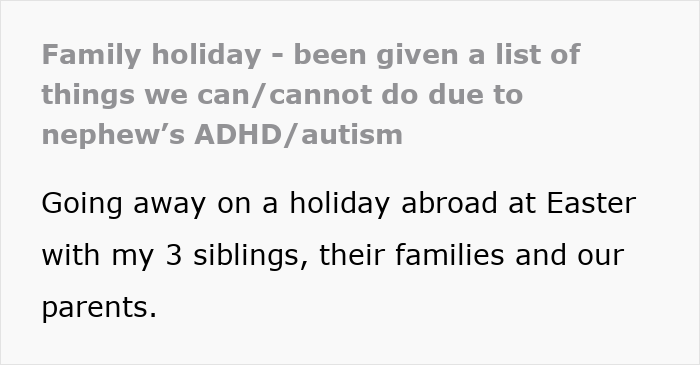
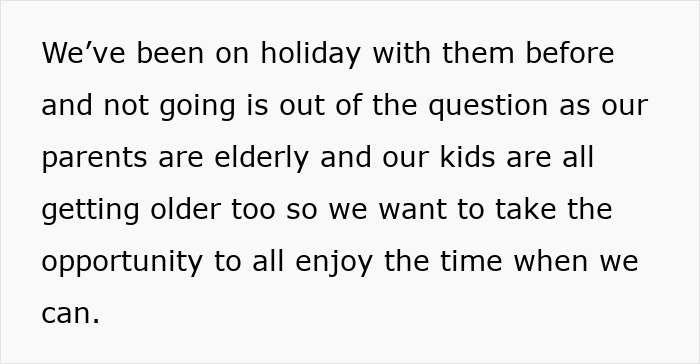
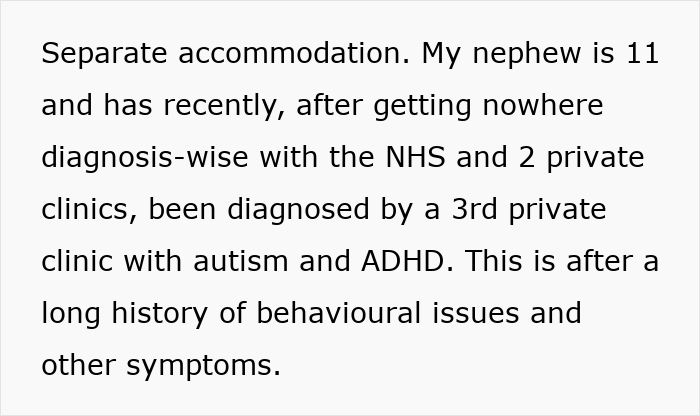

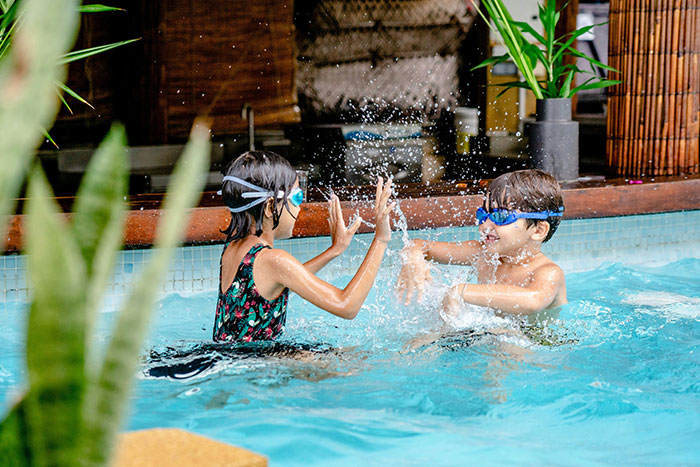
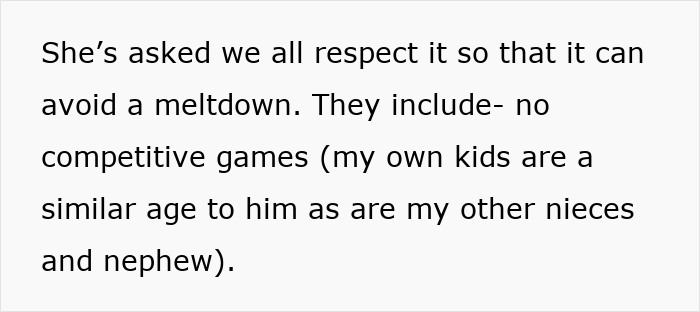
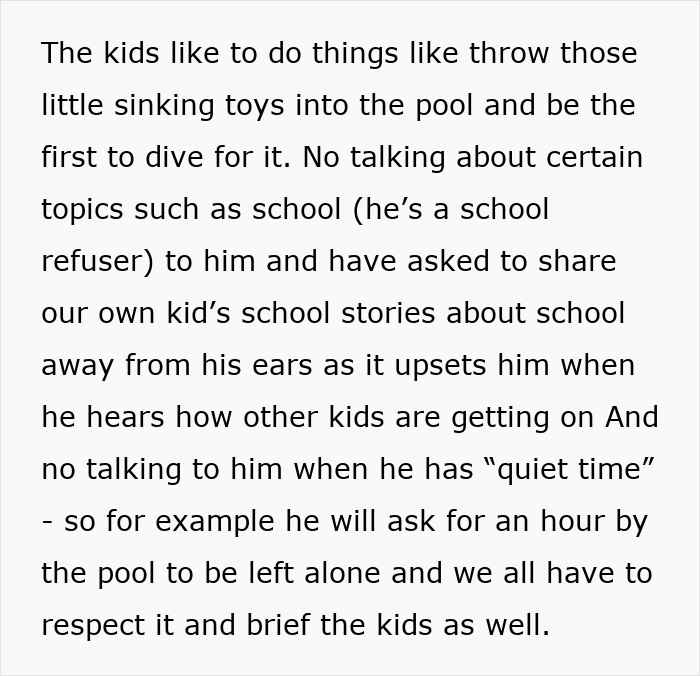
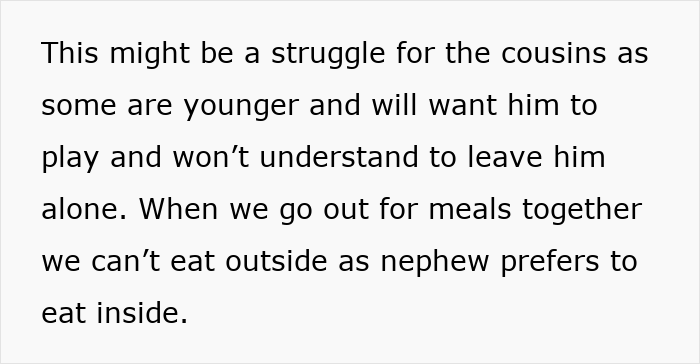
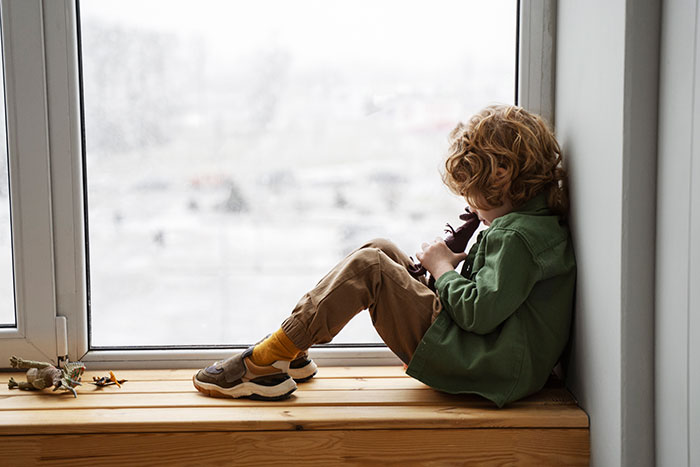
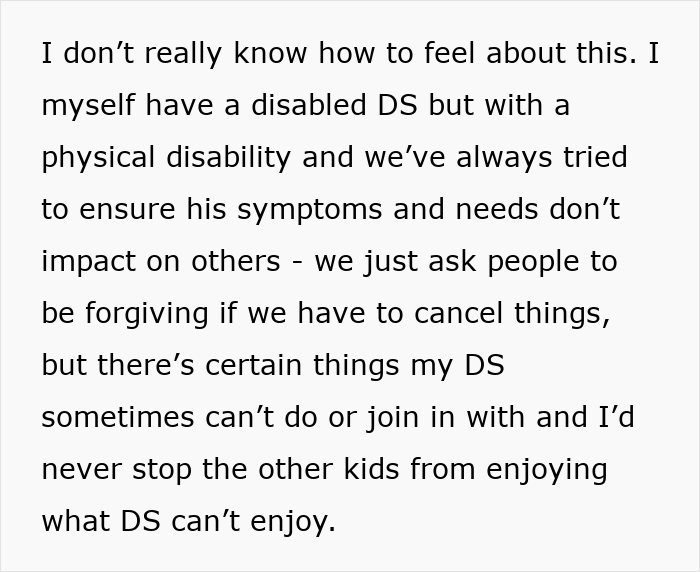







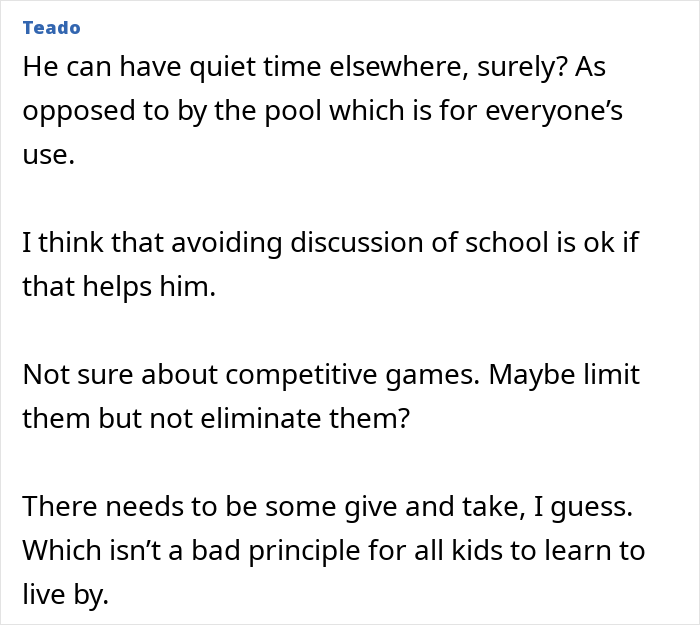
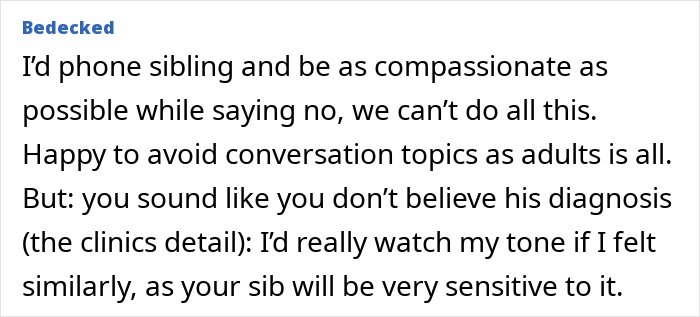
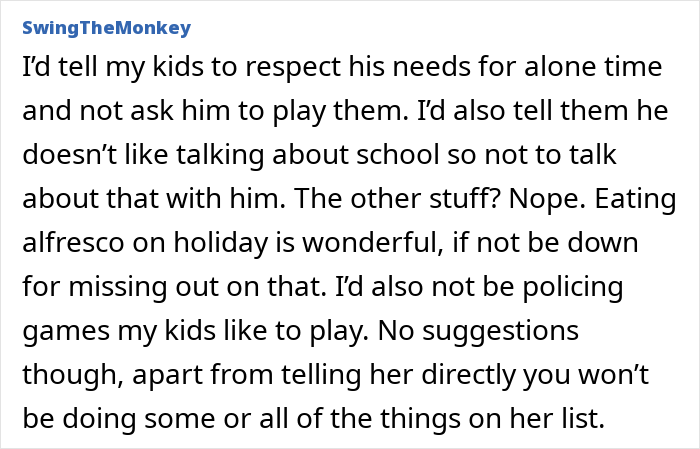
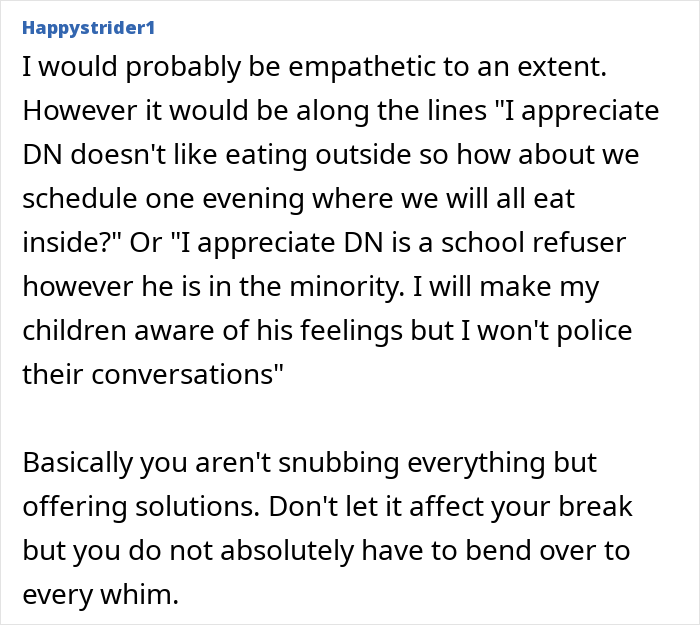
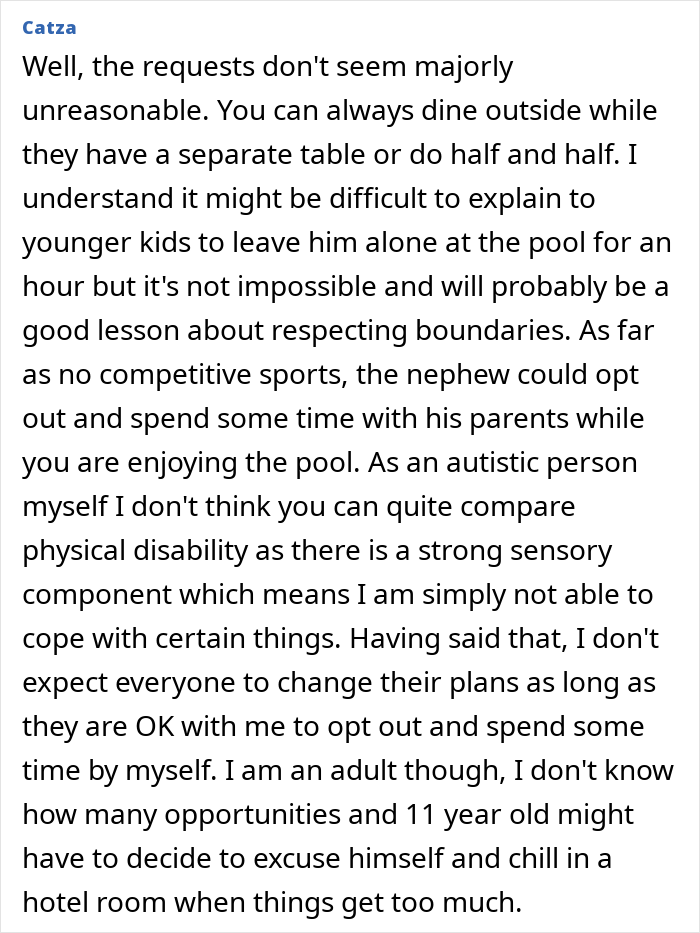
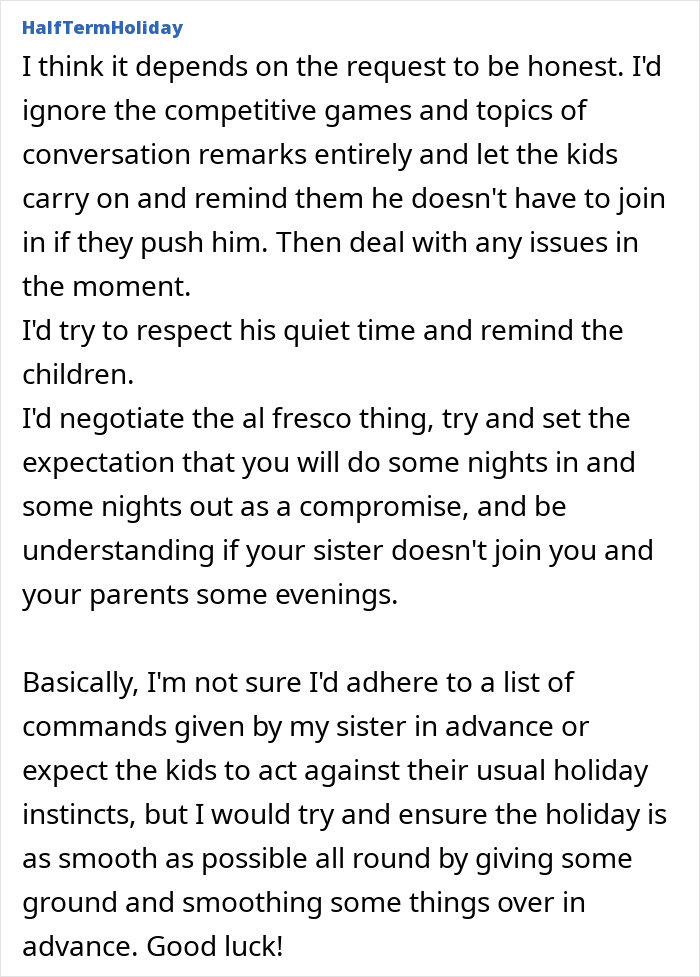
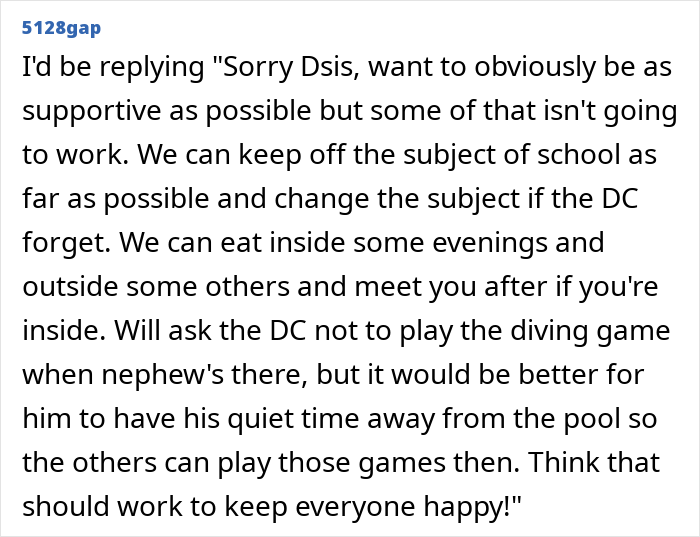
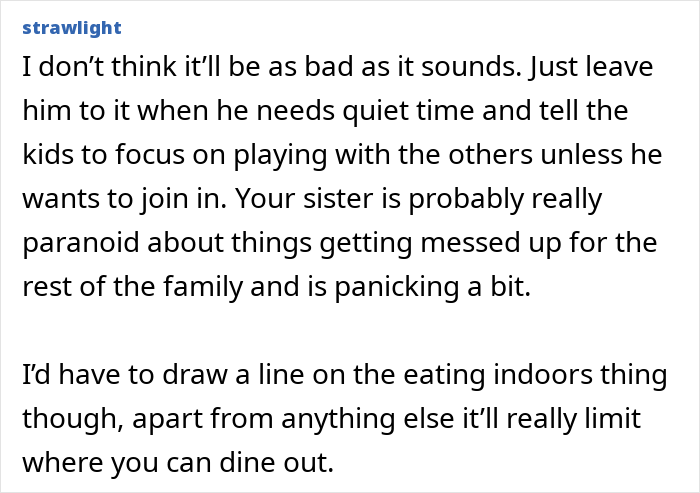
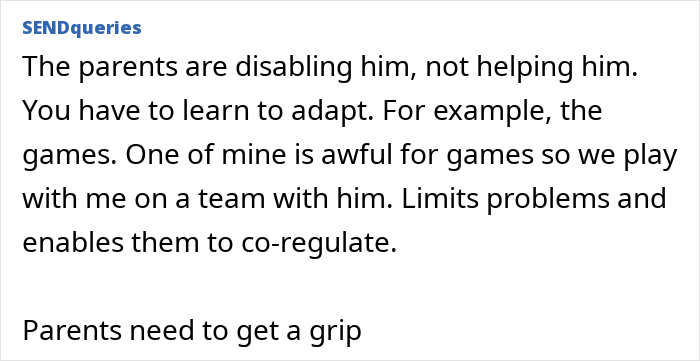

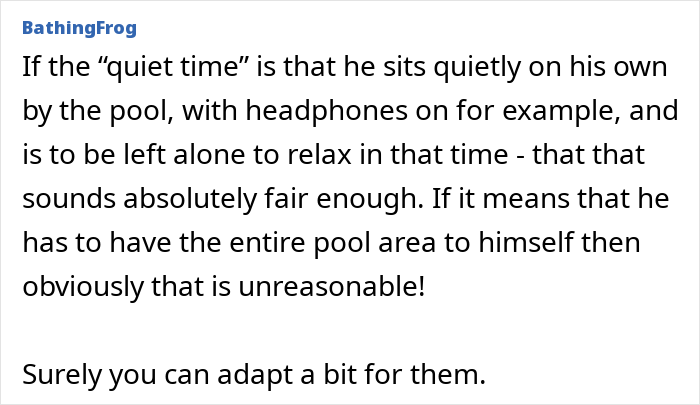
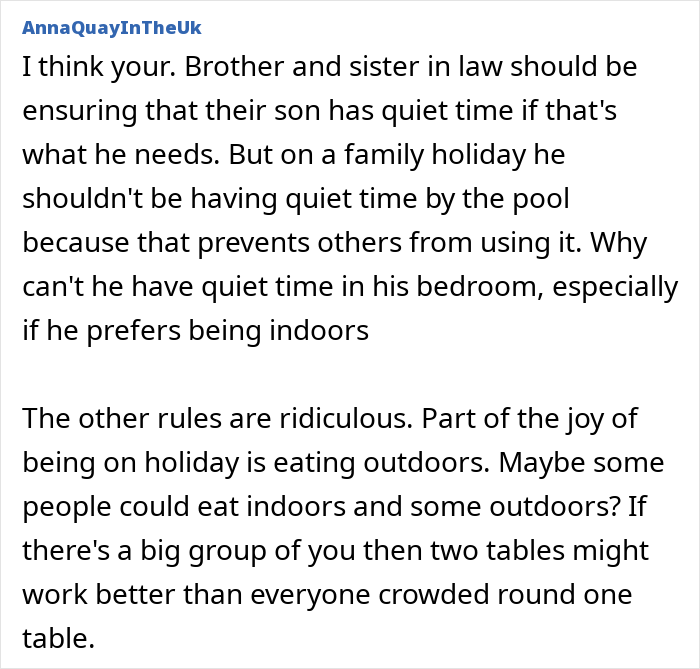
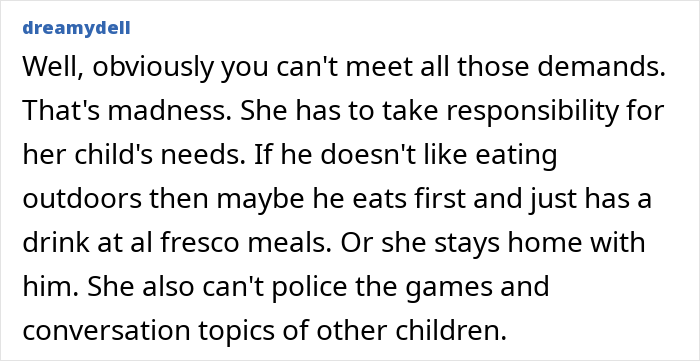


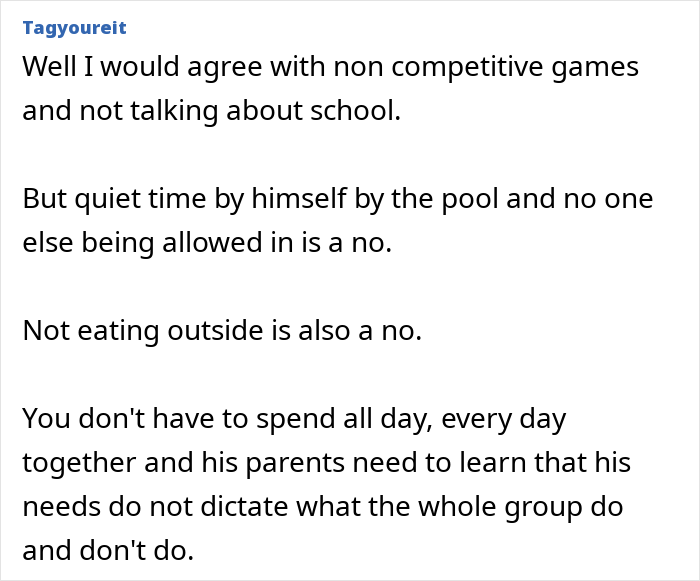












































46
39